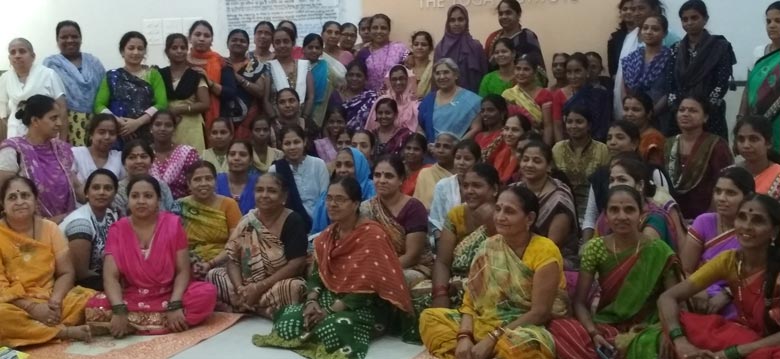Principles That Shape MarketPlace
April 1st, 2022 | By Pushpika Freitas, President of MarketPlace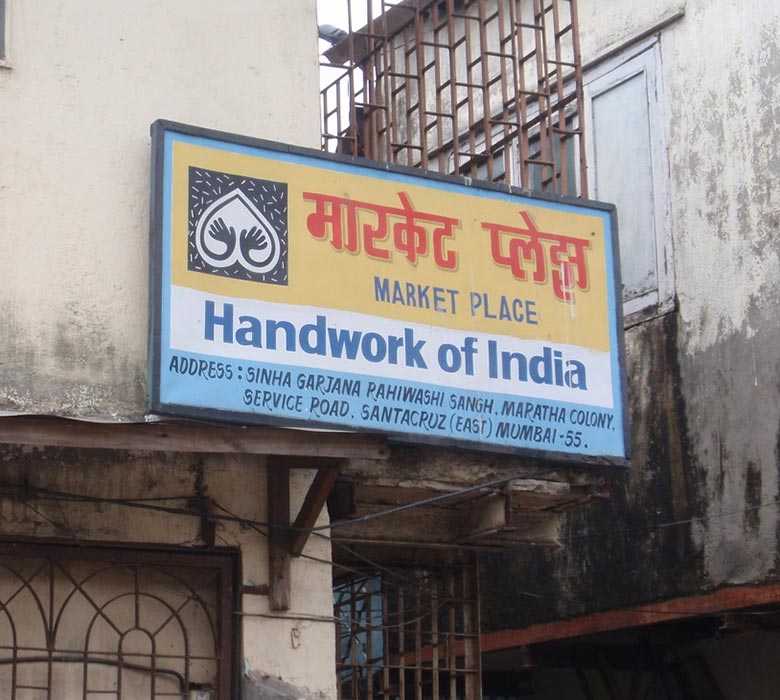

I have been working with women in the slums of Mumbai for over 40 years and certain questions have grown from this experience: What are the responsibilities of someone working to help and empower a group or community? What role should that person play? How should that person view his/her power? I have to confess, however, that when I started out at the age of 24, I did not know enough to ask these questions. Looking back, I can see that I was quite conceited, and more than a little clueless! Because I had completed my master's degree in the U.S. I thought I knew what was best for the women. Although I did not come from a wealthy family, I was financially secure. Because of these factors the women looked up to me and I thought they were depending on me for answers and directions.
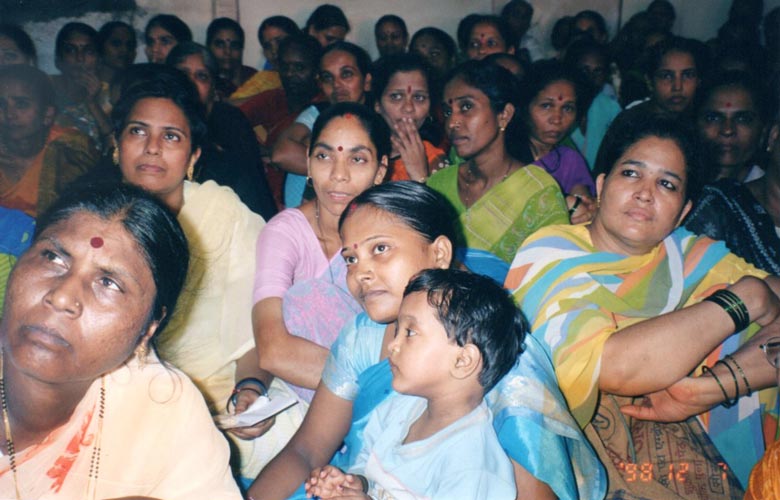
After I started to work with the women, I realized how little I knew. I first was confronted with the above questions when I decided to add education programs as part of the work. All of us can benefit from new knowledge, right? My mistake was my choice of subject: nutrition and healthy foods. This despite the fact that I knew nothing about cooking. The women, knowing this, laughed at me. Although I was embarrassed, I was also gratified to learn that the women were comfortable enough to disagree with me.

Once they stopped laughing, the women told me what they really needed to learn. Because they had been denied basic education, they could not read or write. When their children brought home their report cards for their signature, the women had to sign with their thumb impression. What they really wanted to learn was to write their names. Just that, a simple but heartfelt ambition that I never would have thought of on my own. It was my first lesson in learning that what works in textbooks may not be right for real life. It brought into sharp focus that although I was Indian and had lived most of my life in Mumbai, I was still an outsider because of my education and social standing.
This was the inspiration for the principle that any program conducted by or facilitated by Share (MarketPlace's nonprofit partner in Mumbai responsible for social programs for the artisans) must arise from a need or desire voiced by the women. It is something we try to keep in mind, reminding ourselves and one another of this priority. Social workers (and I include myself here) are taught that they should identify problems and then find ways to solve them. We do a lot of unlearning of this lesson.
Similarly, we do not like the concept of charity. This transaction may feel good for the givers, but it often does not truly benefit the recipient in a meaningful way. Our slogan, "Dignity not charity" refers to how the women are earning their own way by making products that stand on their own merit. They are running their own businesses and learning skills which will serve them well into the future.
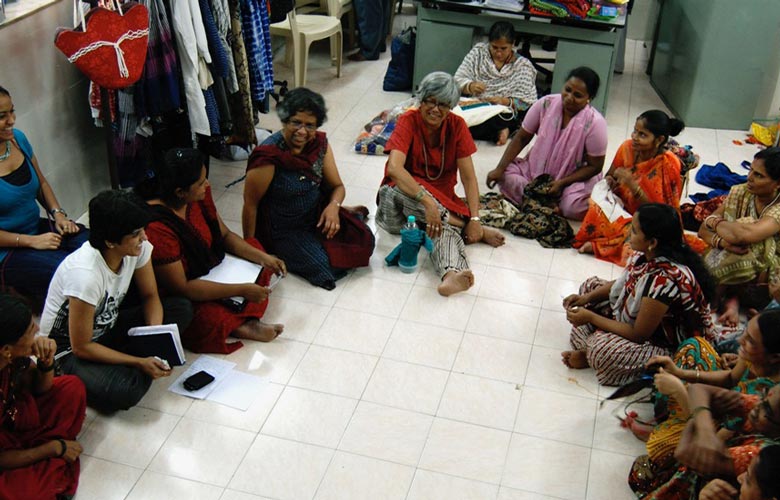
It is crucial that we listen to the women to ensure that we do not impose our values or beliefs on the programs. A number of really relevant and sound programs have come out of listening to the women. One way to learn what is important to them is to join their meetings. In their workshops they are able to meet with other women to talk about what is happening in their lives and to get advice and guidance from other cooperative members. In such meetings we heard about their struggles with their teenage children: how the children wanted to watch more TV and play with their friends, whereas the mothers wanted them to study more. Now sessions are regularly held for the parents of teenage children, as well as for the children themselves, to help develop good study habits, keep a schedule, maintain healthy eating - and also the need for recreation. More recently, the subject of social media was added, including its dangers and pitfalls. Other programs for their children, including academic and life skills support, also reflect their hopes for a better future for their sons and daughters.

With time, the interests and goals of the artisans have expanded. One group decided to bring in newspapers, read them and discuss certain articles. This experiment was very enlightening and the women enjoyed it so much that it became a monthly practice for all the groups. It sparked an interest in current affairs, something that was not encouraged in their families. And it brought to light issues with the environment. After an informative session with an environmentalist the women totally embraced this cause. They have come up with ideas like using steel bottles for the water they bring into the workshop, making holiday decorations for Diwali using materials they had at home, and using cloth bags to carry their shopping.
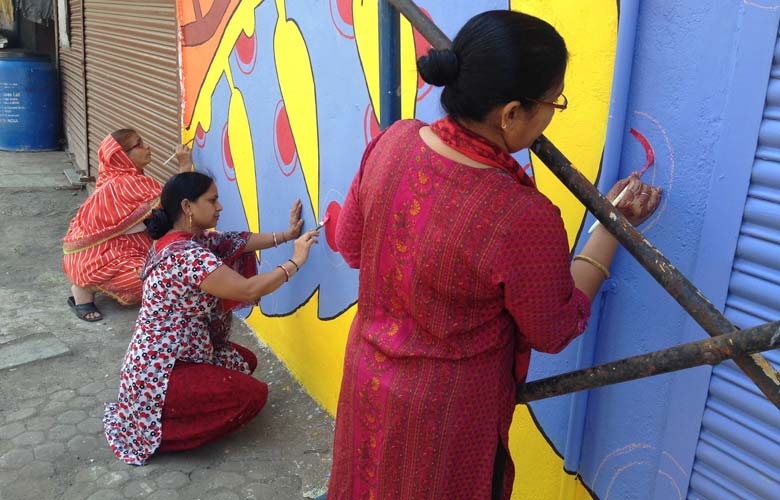
We believe that change, if it is to be effective, has to come from within the person. One social reality we continue to grapple with is how to handle cultural norms that enforce the traditional role of women. These widely-held beliefs have prevented women from having a voice in the family and from fulfilling their potential. And these ideas are held by women as well as men. Instead of dictating how women should act and think, we have taken opportunities such as International Women's Day to discuss the role of girls and women and learn about the brave women who fought for India's independence. We have had open discussions about how women are depicted or limited. The cooperative organization itself supports reflection and discovery as the women talk about what they think is good or unfair or what they want to see changed. Their status as wage-earners and decision-makers has had an impact on both their self-image and their respect in the family and community.
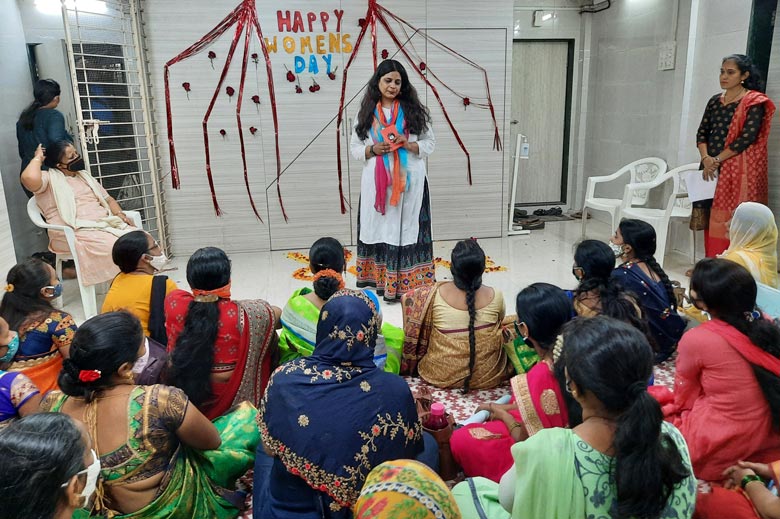
Social Work is called the "helping profession." This seems to imply that the social worker has all the knowledge, resources and power in relation to the person being helped. I find this paternalistic, and we try very hard not to subscribe to this. Looking back to when I started the business side to the endeavor, I readily admitted that I did not know what I was doing. I refused to write a business plan partly because it was too daunting. But I think also that my instincts led me in the right direction. My view in life is to look for and find opportunities and take advantage of what makes sense. By not locking the organization into a strict plan and timeline, I was able to respond to needs and opportunities and change direction when warranted. The best lesson for me was to pay attention to the women. They put their trust In me, for whatever reason, and in turn I put my trust in them. I attribute the success of MarketPlace to the resilience of the women, their hard work and wisdom, luck and my determination to make it work (in that order!).
